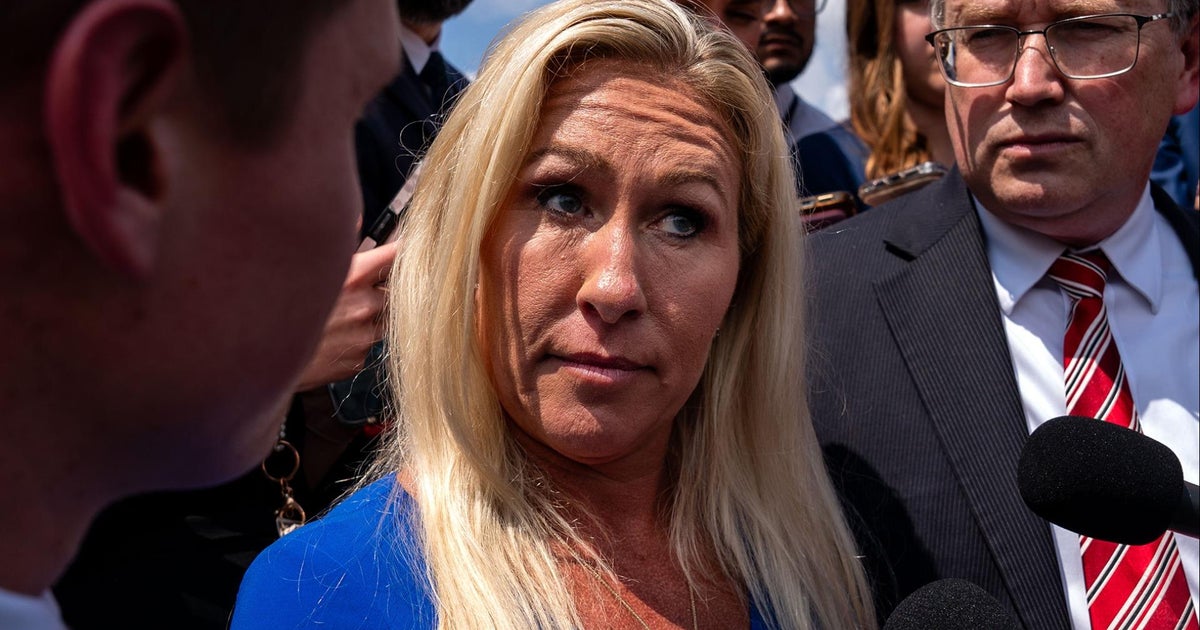In a significant turn of events, Rep. Marjorie Taylor Greene, a prominent figure in the Republican party and a strong supporter of former President Donald Trump, declared on Friday that she would not be vying for a Senate seat in the upcoming elections in Georgia. This announcement further stirred the political dynamics in Georgia, a state that has been a hotbed of closely contested races in recent elections.
Greene, known for her fervent advocacy of Trump’s policies and her often controversial stance on various issues, cited dissatisfaction with the Republican Senate leadership as a key reason for her decision. In a candid post on the social media platform X, previously known as Twitter, she expressed her reluctance to “fight for a team that refuses to win,” criticising the Senate Republicans for their lack of aggressive action.
This development came shortly after Georgia Governor Brian Kemp, another major Republican figure, also opted out of the Senate race. Despite being seen as a top candidate for the Senate seat, Governor Kemp announced his decision not to run earlier in the week, citing family concerns and possibly larger political ambitions within the Republican party as factors in his decision. Kemp’s announcement was preceded by detailed discussions with influential figures within the party, including Sen. Tim Scott of South Carolina, who chairs the National Republican Senatorial Committee.
The Republicans are keen on reclaiming the Georgia Senate seat currently held by Democrat Sen. Jon Ossoff in order to strengthen their majority in the Senate, with the current balance standing at 53-47 in favor of the Republicans. This makes the upcoming election crucial not just for the state of Georgia but potentially for the national political landscape.
Entering the race in the wake of these withdrawals is Rep. Buddy Carter, another staunch Trump ally, who has positioned himself as a “MAGA Warrior” in an effort to appeal to the Trump base within the state. His entry into the race underscores the high stakes and the intense intra-party competition among Republicans aiming to secure their spot in the Senate.
Georgia, traditionally seen as a stronghold for conservatives, has displayed increasingly competitive political tendencies in recent elections. Sen. Ossoff clinched his position by a narrow margin of less than two percentage points in the 2021 Senate runoff elections. Similarly, Sen. Raphael Warnock secured reelection in 2022 by a slim margin, underscoring the fluctuating political dynamics in the state and the diminishing stronghold of the Republican party.
Rep. Greene, who first came to Congress in 2020, has quickly become one of the most recognizable figures within the House Republican caucus, due in large part to her polarizing rhetoric, hard-right ideological stances, and frequent clashes with party leadership. Despite her visibility and popularity among certain segments of the Republican base, polling data suggested she might face a tough battle against Ossoff. A hypothetical matchup polled by the Atlanta Journal-Constitution showed Ossoff leading Greene by a significant margin of 54% to 37%. In contrast, Kemp demonstrated a much tighter race in hypothetical polls against Ossoff before deciding against a Senate run.
The implications of Greene’s and Kemp’s decisions not to enter the race are significant. It potentially opens the field for other Republican candidates who might be able to leverage a broader appeal in a state that has shown competitive tendencies in recent elections. Furthermore, the Republicans will need to regroup and possibly rethink their strategies to consolidate their bases and appeal to the moderate electorate that has swayed towards Democrats in recent major elections.
As these political developments unfold, the focus will inevitably shift towards other potential candidates who may now consider entering the race, seeing an opportunity in the absence of two high-profile figures. The decision-making process for the Republicans will be crucial, as they aim not only to reclaim the Georgia Senate seat but also to maintain their existing Senate majority.
With the political landscape in Georgia remaining fluid and the upcoming elections proving to be a critical battleground, all eyes will remain on which candidates emerge and how they position themselves in what is expected to be a fiercely contested race. This will not only decide the individual fate of the candidates but could also significantly influence the broader national political trajectory in the coming years.









